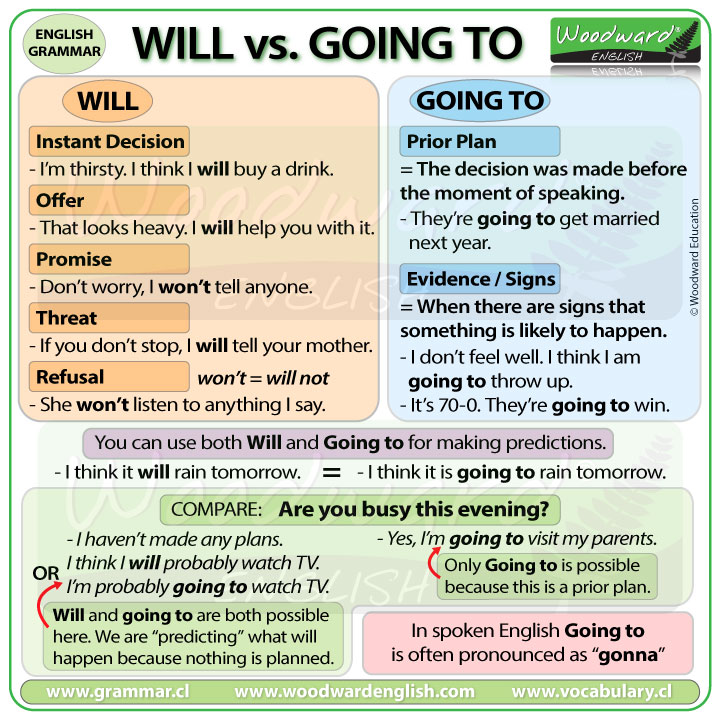When to use "GOING TO"
The future tense with "going to" is most commonly used in spoken language when you want to refer to the immediate future, that is, to something that is about to happen.
Ex:
* She is going to pay with a credit card
* I´m going to drop off my prescription over there.
It is also used to talk about intentions or plans to do something:
Ex:
*I´m going to learn English
FORM
It is formed with the verb "to be" conjugated for the corresponding person, followed by "going to" and the base verb.
TO BE + GOING TO + VERB
When to use "WILL"
The future tense with "will" is used to talk about decisions that are made while speaking.
Ex:
* I need to get my medicine, I will go to the pharmacy tonight
* I need some cash. I will pay with my debit card and ask for cash back
It is also used to say predictions of a general nature.
Ex:
* I´m sure it will rain tomorrow
*Camilo Perez will win the election.
FORM
WILL + VERB
QUICK SUMMARY CHART:

Comentarios
Publicar un comentario